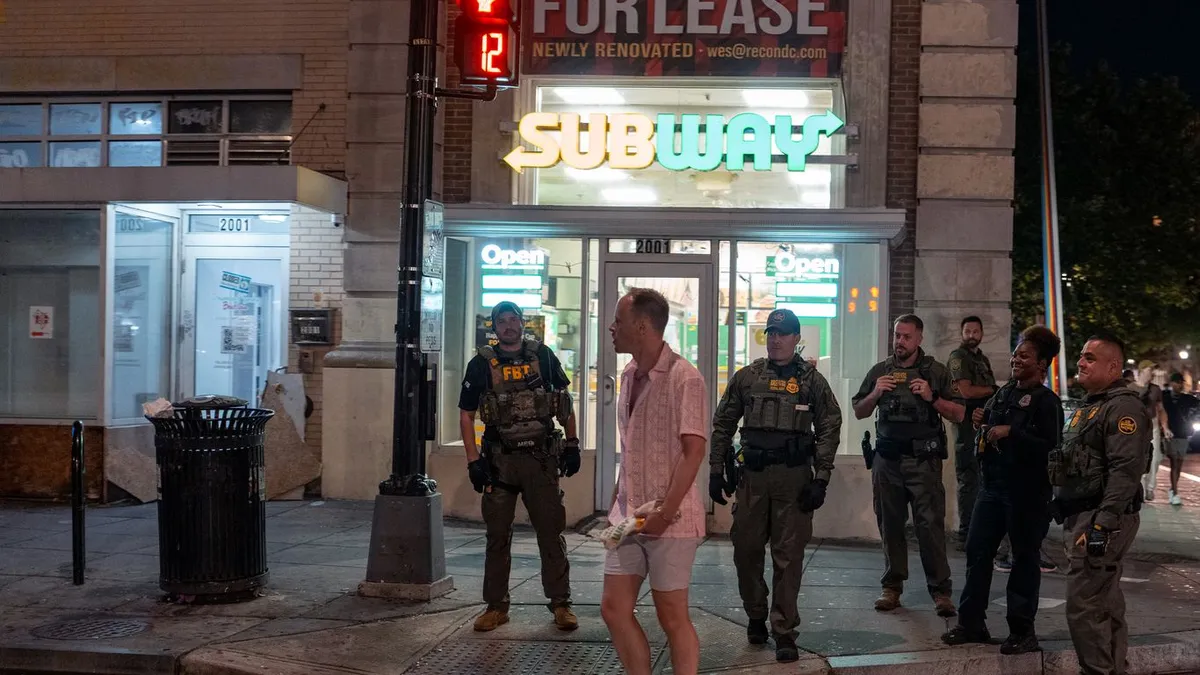
A former Justice Department employee, Sean Charles Dunn, has been found not guilty of assault following an incident in August where he was accused of throwing a sandwich at a Customs and Border Protection (CBP) agent. The jury's decision, which came on Thursday, marks a significant moment amid ongoing discussions about law enforcement and immigrant rights in the United States.
The incident involving Dunn, 37, quickly gained national attention, especially after video footage of the event went viral. Dunn has since become a symbol of resistance against former President Trump's crime crackdown in Washington D.C. “That night I believe I was protecting the rights of immigrants,” Dunn stated to reporters following the verdict. His actions have resonated with many who support immigrant rights and oppose aggressive law enforcement tactics.
Prior to the trial, prosecutors sought to elevate the matter to a felony assault charge. However, federal grand jurors ultimately decided against indicting Dunn, a decision that has raised questions about the thresholds for legal accountability in similar cases. Dunn's acquittal reflects the jury's perspective on the nature of the incident and the context surrounding it.
Following the verdict, Dunn expressed his heartfelt gratitude to those who supported him throughout the legal battle. “I would like to thank family and friends and strangers for all of their support, whether it was emotional or spiritual or artistic or financial,” he said. Dunn, a U.S. Air Force veteran who served in Afghanistan, has received considerable backing, including a GoFundMe campaign initiated by a supporter. He added, “To the people that opened their hearts and homes to me, I am eternally grateful, and I am so happy that justice prevails in spite of everything happening.” The moniker “sandwich guy” has since become synonymous with his story.
In response to the jury's verdict, U.S. Attorney Jeanine Pirro issued a statement emphasizing the importance of protecting law enforcement personnel. “As always, we accept a jury's verdict; that is the system within which we function,” she noted. However, she also stressed that “law enforcement should never be subjected to assault, no matter how 'minor'.” This statement underscores the ongoing debate about the treatment of law enforcement officers and the necessary boundaries in interactions between citizens and authorities.
The outcome of Dunn's trial has sparked widespread conversation about the balance between immigrant rights advocacy and the protection of law enforcement officials. As the story continues to unfold, it remains to be seen how it will influence future legal cases and public perception in a politically charged environment.